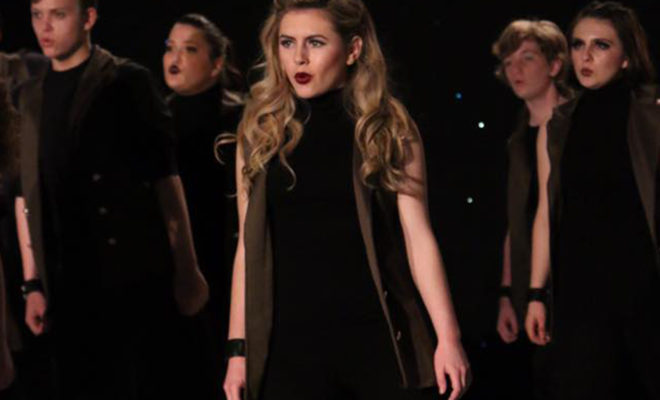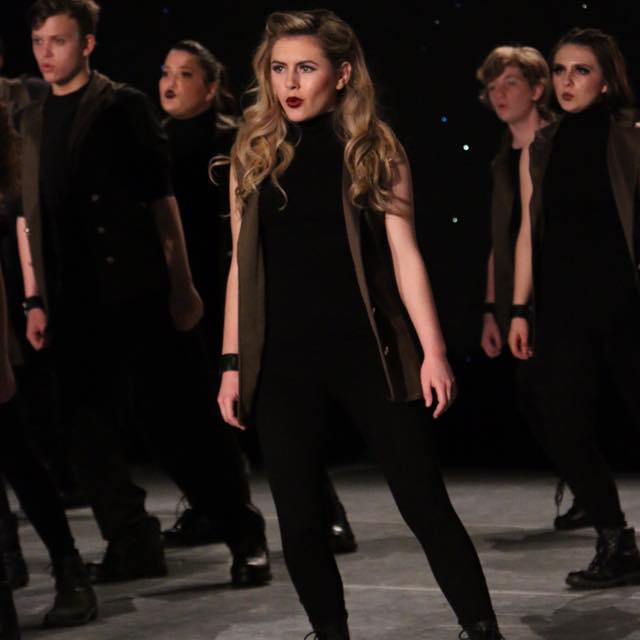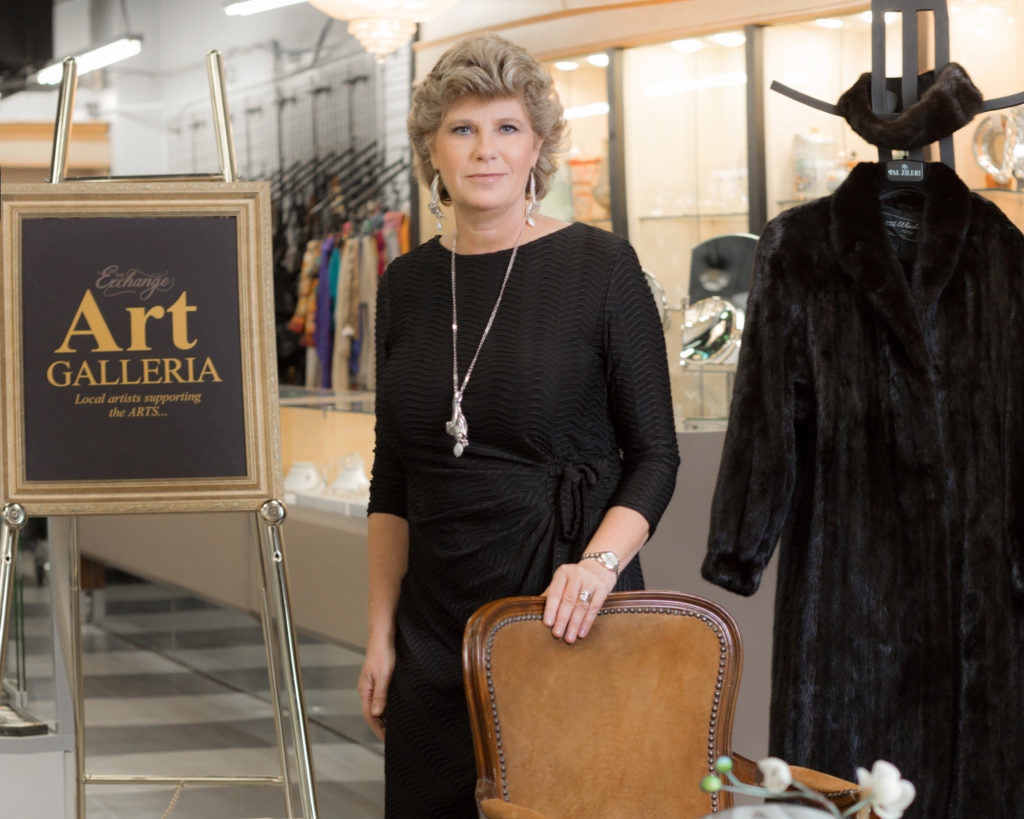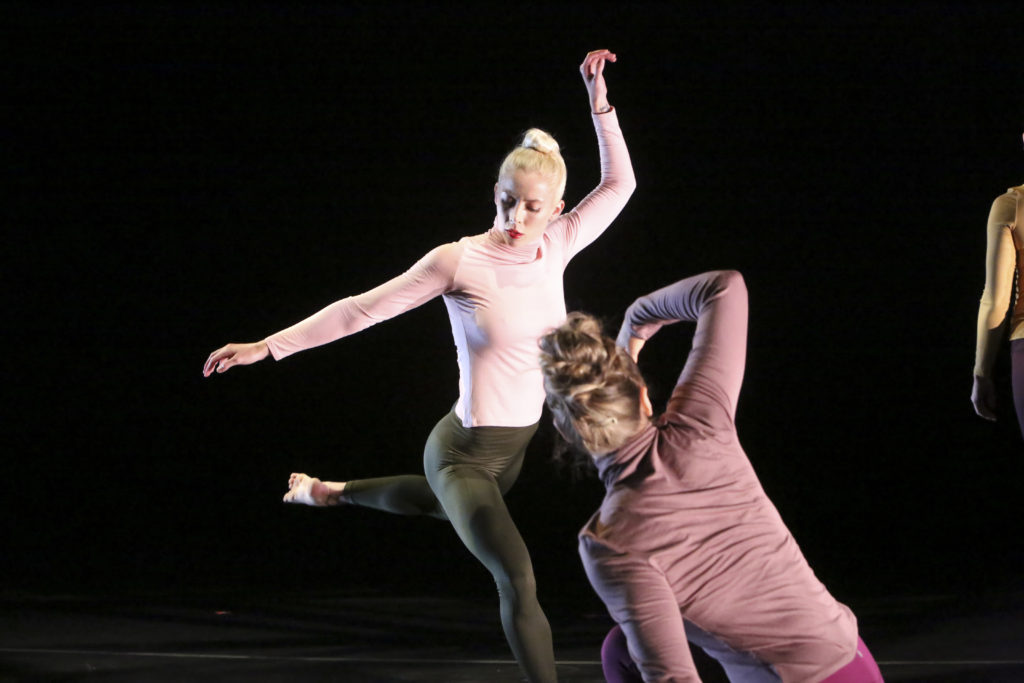
Arts & Culture
The Exchange: From Consignment to Conservatory
Thanks to The Exchange, Students in the Arts Graduate with a Debt of Gratitude
By Sylvia Whitman
Savvy shoppers find deals at The Exchange (formerly the Woman’s Exchange), the sprawling consignment store at 539 and 521 S. Orange Avenue in Sarasota. Its gently used gems range from silk scarves to silver serving bowls, Chippendale chairs to singular sculptures. But the canniest of customers browse with a sense of greater purpose than mere treasure hunting. By buying the wares, they are also buying into The Exchange’s vision: to touch the heart and stimulate the creative mind of every adult and child in Sarasota and Manatee Counties, through its financial support of a large and artistically diverse group of organizations, as well as students who aspire to be the world’s next generation of cultural influence.
The Exchange’s grants to local arts organizations date back to its founding in 1962 by four local women who raised money for the Florida West Coast Symphony. Testimonials pepper The Exchange’s website. Less remarked upon are the scholarships for individual students, which run about $1,000-3,000 per academic year.
 “They made my schooling possible,” says up-and-coming opera singer Adelaide Boedecker, a Sarasota native now based in Atlanta. Exchange scholarships from 2008-2013 contributed to the quilt of financial aid that enabled her to earn a bachelor of music degree in vocal performance at the University of Florida and a master’s at Eastman School of Music in Rochester, NY—debt free. “That was a huge blessing.”
“They made my schooling possible,” says up-and-coming opera singer Adelaide Boedecker, a Sarasota native now based in Atlanta. Exchange scholarships from 2008-2013 contributed to the quilt of financial aid that enabled her to earn a bachelor of music degree in vocal performance at the University of Florida and a master’s at Eastman School of Music in Rochester, NY—debt free. “That was a huge blessing.”
The scholarship committee members “were giving monetarily, but even more importantly, they were backing me up,” says Boedecker. Although her soprano stood out in the Church of the Redeemer choir and the Sarasota Youth Opera, she recognized that she was “a big fish in a small pond.” The endorsement implied by an Exchange scholarship assuaged some of her self-doubt.
“When somebody puts their money where their mouth is and says they believe in you, then you think maybe you’re not crazy for wanting this dream,” says Boedecker, a Pine View School alum. Even after four years at UF, the hometown cheering squad represented by The Exchange scholarship continued to matter. “I never thought I was going to make it into the Eastman School of Music,” she adds. “I know that my tenacity was largely due to the fact that those people believed in me.”
Jazz trumpeter Bit Risner felt The Exchange’s wind at her back at an even younger age. Homeschooled, she dual-enrolled at Booker Middle School as a 10-year-old to play in the jazz ensemble. “I was tiny, maybe 50 pounds,” she says. The much bigger boys in the group treated her like a little sister. They started a band, playing at the Sarasota Farmers’ Market and in front of Whole Foods. Soon the group evolved into Jazz Juvenocracy, with a regular gig at the Irish Rover in Gulf Gate. “That’s where The Exchange found us,” says Risner.
With Exchange grants in 2010 and 2011, Jazz Juvenocracy made its show “even cooler.” They partnered with Fuzion Dance Artists and “hired a lighting guy.” As the teenagers tailored their arrangements, the music became “way more intricate,” Risner says. Many adults supported Jazz Juvenocracy with their time and money, but The Exchange was instrumental in making it possible for the group to accept an invitation to the Montreux Jazz Festival in Switzerland and the North Sea Jazz Festival in the Netherlands. “If it wasn’t for The Exchange, we wouldn’t have been able to do those incredible shows,” says Risner.
With a jazz scholarship from the University of North Florida, Risner didn’t apply for individual support from The Exchange. However, four years of Exchange scholarships helped Jazz Juvenocracy bassist Reed Tucker through Mercer University, after which he landed a full-ride Kovner Fellowship at Julliard.
 Over the decades, The Exchange has disbursed more than $8 million to local nonprofits and high school and college students pursuing higher education in the arts. The Exchange’s executive director and CEO Karen Koblenz points out that organizational grants and individual scholarships complement each other. Youth programs sponsored by the Sarasota Orchestra and Sarasota Opera, for example, help “students gain the confidence to go on to Berklee College of Music and Julliard.”
Over the decades, The Exchange has disbursed more than $8 million to local nonprofits and high school and college students pursuing higher education in the arts. The Exchange’s executive director and CEO Karen Koblenz points out that organizational grants and individual scholarships complement each other. Youth programs sponsored by the Sarasota Orchestra and Sarasota Opera, for example, help “students gain the confidence to go on to Berklee College of Music and Julliard.”
The 2019 cohort of awardees includes 20 organizations, 13 undergraduates, and 9 high school students. “Our grants empower the creative visionaries of today,” says Koblenz. “Our scholarships empower the creative leaders of tomorrow. It’s really two sides of the same coin.”
Booker High School, with its heralded Visual and Performing Arts (VPA) program, enjoys disproportionate representation among scholarship recipients. Recent graduate Sydney Catalfino, for instance, will study animation with the help of her Exchange scholarship. As a VPA senior, she wrote the script for Into the Storm (2019), a documentary about Booker’s stupendous 1966-67 basketball team and the community action that prevented the school from closing for good. Catalfino and VPA classmates Charlotte Corporan (music), Taylor Reister (musical theater), and Sydney Anne Robinson (musical theater) join an illustrious roster of Exchange-supported Booker alums in the arts. One of the most recognized is actor Charlie Barnett—of Chicago Fire and Russian Doll fame—whose Exchange scholarships boosted him through Julliard’s drama program.
 Another Booker grad, Claudia-Lynn Rightmire, benefited from four years of aid as she studied dance and performance at Roger Williams University in Rhode Island, a college she could not afford. “Dance has always been my passion,” says Claudia-Lynn. “The Exchange found value in that passion far beyond what I ever could have hoped for and I found my future because of that support. I have now performed in England, Australia, and around the U.S. with confidence, knowing that I belonged. I have taught in schools throughout Australia, at The Sarasota Ballet, Booker High School, Sarasota Contemporary Dance Company, and so many other, sharing my passion and creating open spaces for dialogue, movement, and change. I am now going to New York City hoping to help young artists feel like they belong, just like those at The Exchange did for me.”
Another Booker grad, Claudia-Lynn Rightmire, benefited from four years of aid as she studied dance and performance at Roger Williams University in Rhode Island, a college she could not afford. “Dance has always been my passion,” says Claudia-Lynn. “The Exchange found value in that passion far beyond what I ever could have hoped for and I found my future because of that support. I have now performed in England, Australia, and around the U.S. with confidence, knowing that I belonged. I have taught in schools throughout Australia, at The Sarasota Ballet, Booker High School, Sarasota Contemporary Dance Company, and so many other, sharing my passion and creating open spaces for dialogue, movement, and change. I am now going to New York City hoping to help young artists feel like they belong, just like those at The Exchange did for me.”
Boedecker, for one, has a sense of belonging to a Sarasota arts community in diaspora. “We’re all out there doing amazing things,” she says of The Exchange scholars. “Jazz, costume design, so many arts.” Jon Sams, for instance, shoots beauty and portrait photographs in LA. “We have people all over the country.”
The Exchange has also supported the launch of game artists and animators. A scholarship gave a hand-up to Syrian-born Jamil Lahham, who majored in computer animation at Ringling College of Art and Design and whose animation and directing credits include Cloudy with a Chance of Meatballs (2009), as well as the 2011 Academy Award winning short, The Fantastic Flying Books of Mr. Morris Lessmore. Lahham and fellow Ringling grad/Exchange scholarship recipient Scott McWhinnie overlapped at Moonbot Studios before McWhinnie left for Blue Sky Studios, where he has animated Ice Age: Collision Course (2016) and Ferdinand (2017), among other movies. And Evan Lovejoy, spurred on by The Exchange and armed with a BFA from USF, now creates art for mobile games with Tripledot Studios, based in London.
“To go to any kind of art school is wildly expensive,” says Koblenz. A scholarship helps students grow beyond local opportunities—but once launched, they often come back, for good or for a visit. Last March, for instance, Boedecker made her one-night debut as damsel-under-lock-and-key Pamina in Mozart’s The Magic Flute at the Sarasota Opera House. After studying, teaching, and performing in England and Australia, Rightmire has returned to her hometown as a member of the Sarasota Contemporary Dance Company. She serves now as part-time faculty with The Sarasota Ballet and as an adjunct instructor at her alma mater Booker.
“Sharing their gifts, they impact the community and the world as a whole,” Koblenz says.
Hometown support has a lingering effect. The “cloud of witnesses” sustains Boedecker to this day, through a performing career she describes as “a job of nos and couple of yeses.” (More than just a couple. Boedecker has sung as a resident artist with the Pittsburgh Opera and as an apprentice with the Santa Fe Opera; the San Francisco Chronicle described her as a “vivid Stella—emotionally transparent and beguiling of tone” in the Merola Opera’s production of A Streetcar Named Desire.) She and her husband, bass-baritone Calvin Griffin, are resumé building, flying out from their Atlanta hub for short stints with different companies as their singing and acting mature. (Opera voices “need a little more time in the oven,” Boedecker explains.) The backing of The Exchange and Sarasota artists “has made me work harder,” she says. “I need to make good on that gift that has been given to me.”
And whenever she visits Sarasota, she shops at The Exchange, knowing the money will support other artists. Her grandmother gave her some beautiful plates, and Boedecker found a match in the store to complete the set. “It’s a small way of paying it forward,” she says.



You must be logged in to post a comment Login